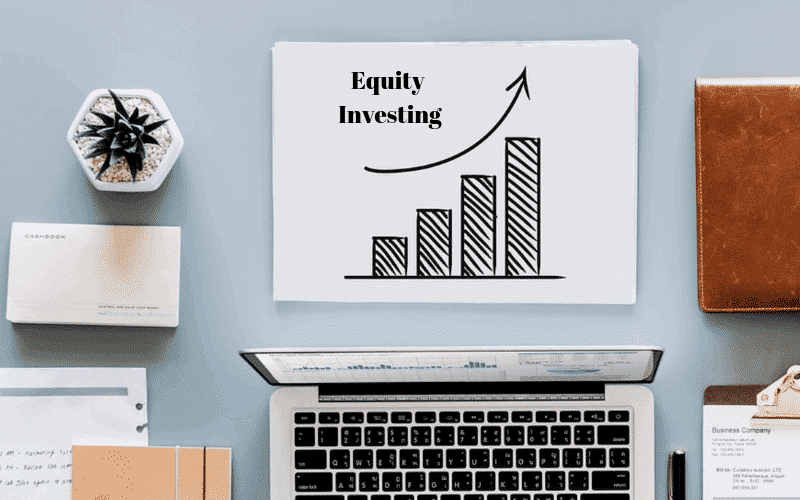Affiliate Links
As you start saving and building a financial foundation, you’ll need to start investing that money. If you really want to obtain wealth and secure a solid nest-egg, investing your money is crucial.
And most people understand that investing their money is smart and valuable to their future plans of retiring.
However, there is no definite class in the education system called “Investing Money for Beginners.” Least, not something I’m aware of currently ?
But, you can learn how to do the basics on your own and learn how to put your money to work for you while you sleep.
Even if you might be intimidated by investing money or scared to lose it all, it’s important to not let all your money just sit on the sidelines.
Before you dive into any sort of investing, there are some important items you need to know first before doing anything. These are not tips for how to get started, more of a checklist of things to understand.
Table of Contents
- You Should Have Money Saved First That’s Not for Investing
- Get Your Investing Literacy On
- Pay Off High Interest Debt Before
- Only Risk What Won’t Crush Your Finances
- Getting Rich Overnight Should Not Be Your Priority
- It’s Okay to Make Small Investing Mistakes
- Understand Why You Want To Invest
- Some Additional Tips for Investing Beginners
- How Much Money Do I need to Start Investing?
You Should Have Money Saved First That’s Not for Investing
You never want to go all in with investing money, even if you think it’s foolproof (nothing is!). This means, you should have a nice cash reserve set aside in your bank account, preferably a mix of your checking and savings.
This is what you’d call an emergency fund or your “rainy day” fund. Build these up first, typically 3-6 months of expenses (I aimed for 6 – 12 months), before considering investing.
Of course, if your company offers a 401k, take advantage of the company match. But outside of that, save your money first before doing any additional investing.
Get Your Investing Literacy On
I’d say a key component to investing money for beginners is to educate yourself on investing. It doesn’t mean you need to be the next Warren Buffett, but you should understand how investing works.
Start learning about investing money, common investing terms, what to look for, how the stock market works, etc. There is a lot of information out there, but if you start to slowly digest it you’ll see that’s it’s not overly complicated.
This does mean spending some time reading books and other trusted publications a bit each week. But if you have no background at all with investing money, this is probably the most important item.
Pay Off High Interest Debt Before
Again, if your company offers a 401k with a match, still take advantage of that. But before investing any money, take care of any high interest debt, like credit cards.
Many credit cards have 20%+ interest rates, which no investment will beat. Instead of pro-longing this debt and trying to invest, just knock it out.
You’ll feel better having taken care of this debt, you’ll still have your 401k started, and then you’ll have more money to save (or for future investments) since you won’t have any high interest eating your cash.
Only Risk What Won’t Crush Your Finances
If you recall from early in this post, I mention about building a savings foundation first that is not used for investing.
However, even the money you use after that for investing, you still want to understand your risk.
If something were to go bad with your investments or the economy, what can you afford to lose without being decimated financially?
This is important because you never want to risk putting all your cash in investments.
Instead you want to be calculated with your investment strategy. It’s okay to be on the aggressive side if that’s your path, but understand the stakes and ensure you won’t be left with nothing if something happens.
Getting Rich Overnight Should Not Be Your Priority
We all want to get rich overnight. Can you imagine? Ah, how exciting life would be!
However, it is the wrong mentality to have when you are investing money. Sure, sometimes a big investing win can happen, but it’s rare.
How do you think Warren Buffett became a multi-billionaire? Besides being smart, he was patience and approached investing money with the long-term mentality.
The “get rich fast” mindset is typically why people end up losing a lot, or most of their money.
Many seasoned investors understand this, but many beginners to investing see dollars way too quickly.
It’s Okay to Make Small Investing Mistakes
Even the best investors in the world make mistakes from time to time. The goal is to ensure they are only small mistakes, which provide great learning opportunities and lessons.
If you’d look back at my Vanguard snapshot from 2014-2016, it was all over the place and there were some mistakes I made which cost me money.
Did it make me broke? Nope. Was I stressing when I lost some of my investment? Nope. Why?
Because I didn’t go all in on something I was still learning about. These mistakes were all a great education for me, which helped when I had more money to invest.
Related: Looking for more? Here are the worst investing mistakes every beginner should avoid
Understand Why You Want To Invest
I think its always important to know why you want to invest your money. Essentially, write down some goals for yourself that might be in 5, 10, 25 years.
This helps you visualize why you’re investing, helps you make better decisions when it comes to what to invest in, and helps keep you on track.
Before I started (besides my 401k) a few years back, I wrote down what I wanted to accomplish and why investing in particular assets was important to my finances.
While it may not have guided every decision, it was helpful to know before dropping any money.
It was also helpful for making adjustments to my 401k and the amount I contributed. Don’t underestimate the simple power of goals and planning for investing.
Some Additional Tips for Investing Beginners
While the above are things to know before investing you money, there are additional tips as you get started as well. Keep these in mind as you get started.
Consistently Contribute – Stick to a consistent investing schedule, even when the market is up or down. This is called dollar-cost averaging and when compounded overtime, it will ensure your investments average out well in the future.
Spot investing fees – When choosing your investment platforms or working with a bank for a loan, always be mindful of the fees. Choose financial platforms with low fees and negotiate bank fees as best you can. Even a small percentage can impact your future investments by a significant portion. Sign-up for Blooom for free to uncover hidden fees and get general 401k or IRA portfolio recommendations.
Diversification is your friend – Kind of like not going all in with your money, you shouldn’t go all in on one particular asset either. Diversifying your assets will help your ride out rough markets better and help protect your money in the long run.
Don’t monitor your investments daily – If you aren’t becoming a day trader or financial advisor, you should not be looking at your investments daily. It will drive you nuts, play with your emotions, and cause you to make hasty decisions based on the market that day. Of course, you want to check in once and awhile, but keep it limited. Starting out, you may want to start at 1x month or less.
How Much Money Do I need to Start Investing?
Technically, there’s no exact amount of money needed to begin investing. But ideally you want to start with a few hundred dollars to get started off right. However, many investing apps like Acorns or Stash let you get started in fractional shares with just a few dollars.
Extra: If you want more of a hands-off approach with your investing, M1 Finance might be the perfect place for you. You can easily manage your money and wealth by letting M1 Finance help you create and automate your investment portfolio. Learn more here.
















